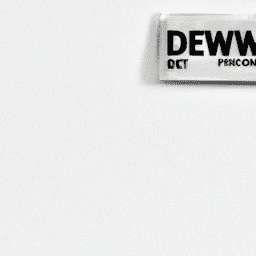If you're a new puppy owner, one of the questions that may be on your mind is when to start deworming your furry friend. It's important to ensure the health and well-being of your puppy, and deworming plays a crucial role in that. In this article, we'll provide you with valuable insights and guidance on the ideal time to start deworming your puppy, along with the importance of regular deworming as part of their overall care routine. So let's jump right in and discover how to keep your puppy happy and healthy!
1. Importance of Deworming
Deworming is a crucial aspect of puppy care that should not be overlooked. It helps to eliminate internal parasites that can greatly impact the health and well-being of your furry friend. Neglecting to deworm your puppy can lead to a range of problems, including stunted growth, nutritional deficiencies, and even serious health risks. Therefore, understanding the importance of deworming is essential in ensuring the overall health and vitality of your puppy.
1.1 Effects of Worms on Puppies
Worms are more common in puppies than one might think. These pesky parasites can have a variety of detrimental effects on their young bodies. Worm infestation can lead to poor digestion, malnutrition, and an impaired immune system. Puppies with worms are often seen with a dull coat, a bloated belly, and may also experience diarrhea or constipation. The presence of worms can also cause stunted growth and weight loss, impeding their development into healthy adult dogs.
1.2 Health Risks for Puppies
Beyond the immediate symptoms of worms, there are several potential health risks that can arise if your puppy is not properly dewormed. Certain types of worms, such as roundworms and hookworms, can be transmitted to humans, posing a risk to the entire family. Additionally, worms can cause serious damage to your puppy's organs if left untreated. For instance, heartworms can lead to heart failure and even be fatal. By taking preventative measures and following a deworming schedule, you can significantly reduce these risks and protect your puppy's health.
1.3 Preventative Measures
Deworming your puppy is not only about treating an existing worm infestation, but also preventing future infections. Regular deworming helps to eliminate any parasites that may be present and prevent further infestations. In addition to deworming, there are other preventative measures you can take to reduce the risk of worm transmission. Keeping your puppy's living environment clean and practicing good hygiene, such as frequent handwashing, will help to minimize exposure to worm larvae. Additionally, avoiding contact with contaminated soil or feces from other animals can greatly reduce the likelihood of an infestation.
2. Initial Deworming Schedule
When it comes to deworming your puppy, it's crucial to follow a proper schedule to ensure their health and well-being. The timing and frequency of deworming can vary depending on different factors, including breeder or shelter guidelines, the puppy's age, and the types of worms you want to target.
2.1 Breeder or Shelter Guidelines
If you have obtained your puppy from a breeder or a shelter, it's important to follow their guidelines regarding deworming. Breeders and shelters often have specific protocols in place to ensure the health of the puppies they care for. They may recommend a particular deworming schedule or provide you with information regarding the dewormers they have previously used.
2.2 Age to Begin Deworming
Deworming typically begins when puppies are around two weeks old. At this age, they are still nursing and can contract worms from their mother's milk. Starting deworming early helps to eliminate any existing worms and prevent further transmission. However, it's essential to consult with your veterinarian for guidance on when to begin deworming your specific puppy, as the age at which to start can vary depending on factors such as the puppy's health and breed.
2.3 Frequency of Deworming
Following the initial deworming, puppies typically require multiple treatments to ensure the complete elimination of worms. The frequency of deworming can vary depending on the specific dewormer used and the risk of reinfestation. As a general guideline, puppies are dewormed every two to three weeks until they reach four months of age. After that, a monthly deworming schedule is usually recommended. However, it's vital to consult with your veterinarian for customized advice based on your puppy's specific needs.
2.4 Types of Dewormers
There are various types of dewormers available, each targeting different types of worms. Your veterinarian will recommend the most suitable dewormer for your puppy's specific needs. Some common dewormers include fenbendazole, pyrantel pamoate, and milbemycin oxime. It's important to administer the correct dosage based on your puppy's weight and follow the instructions provided by your veterinarian. Also, be aware that over-the-counter dewormers may not be as effective as those prescribed by a professional, so it's always best to seek veterinary guidance.
3. Deworming for Specific Worms
Different types of worms require specific treatments, as their life cycles and methods of transmission can vary. By understanding the common types of worms that affect puppies, you can provide targeted deworming to effectively eliminate these parasites.
3.1 Roundworms
Roundworms are one of the most common types of worms found in puppies. These worms can be contracted from their mother's milk or through ingestion of infected feces. Roundworm infestations can cause poor growth, diarrhea, and a pot-bellied appearance. Dewormers such as pyrantel pamoate or fenbendazole are commonly used to treat roundworms, but it's essential to consult with your veterinarian for the most appropriate treatment plan.
3.2 Hookworms
Hookworms are another type of intestinal parasite that commonly affect puppies. These worms can be contracted through ingestion or by larvae penetrating the skin. Hookworm infestations can lead to anemia, weight loss, and dark, tarry stools. Dewormers such as fenbendazole or milbemycin oxime are often prescribed to eliminate hookworms. Regular fecal examinations may be necessary to properly assess the effectiveness of the treatment.
3.3 Tapeworms
Tapeworms are often contracted by puppies through the ingestion of fleas or by consuming infected rodents. They can cause digestive issues, including diarrhea, and can be visible in the stool or around the puppy's anus. Dewormers such as praziquantel or epsiprantel are effective in tackling tapeworm infestations. However, it's important to take preventive measures to control fleas and other potential sources of tapeworms.
3.4 Whipworms
Whipworms are less common but still pose a risk to puppies. These worms are typically contracted by ingesting soil or feces containing whipworm eggs. Whipworm infestations can lead to diarrhea, weight loss, and even anemia in severe cases. Dewormers such as fenbendazole or milbemycin oxime are commonly used to treat whipworms. To prevent reinfestation, it's important to practice good hygiene and avoid areas with known whipworm contamination.
3.5 Heartworms
Heartworms are a particularly dangerous type of worm that can be life-threatening for dogs, including puppies. They are transmitted through the bite of infected mosquitoes and primarily affect the heart and lungs. Heartworm infestations can cause coughing, difficulty breathing, and fatigue. Treatment for heartworms is complex and typically requires veterinary guidance. Preventative measures, such as administering monthly heartworm preventatives from an early age, are essential to protect your puppy from this deadly parasite.
4. Signs and Symptoms of Worm Infestation
Identifying the signs and symptoms of a worm infestation is crucial in ensuring timely treatment for your puppy. By being aware of these indicators, you can take necessary action and consult with a veterinarian for proper diagnosis and treatment.
4.1 Visible Worms in Stool or Vomit
One of the most obvious signs of a worm infestation is the presence of visible worms in your puppy's stool or vomit. These worms may appear as small, spaghetti-like strands or rice-like segments, depending on the type of worm. If you notice anything unusual in your puppy's excrement, it's important to collect a sample and consult with your veterinarian.
4.2 Bloated Belly
A bloated belly can be a clear indication of a worm infestation in puppies. The presence of worms in the intestines can cause swelling and distension, resulting in a visibly larger abdomen. If your puppy's belly appears unusually bloated or if they seem discomforted or in pain, it's important to seek veterinary advice as soon as possible.
4.3 Diarrhea or Constipation
Worm infestations can disrupt normal intestinal function, leading to digestive issues such as diarrhea or constipation in puppies. Frequent episodes of loose stool or difficulty passing stool may indicate the presence of worms. Additionally, blood or mucus in the stool can be a more severe sign of a worm infestation and should be promptly addressed by a veterinarian.
4.4 Vomiting
Puppies with a worm infestation may experience vomiting, particularly if the number of worms becomes overwhelming or if the infestation has reached a severe stage. The presence of worms in the digestive tract can trigger nausea and vomiting. If your puppy exhibits frequent or persistent vomiting, it's essential to consult with a veterinarian to determine the cause and appropriate treatment.
4.5 Weight Loss
While puppies typically experience weight gain as they grow, a sudden or noticeable weight loss can be a cause for concern. Worm infestations can hinder proper nutrient absorption, leading to malnutrition and weight loss. If you observe that your puppy's ribs or other skeletal structures become more visible, it's important to consult with a veterinarian to rule out any underlying health issues, including worms.
4.6 Dull Coat
A healthy puppy should have a glossy and vibrant coat. However, a worm infestation can cause the coat to lose its luster, appearing dull, dry, or unkempt. The presence of worms can disrupt the absorption of essential nutrients necessary for maintaining healthy skin and coat. If you notice a significant change in the appearance or texture of your puppy's coat, it's recommended to seek veterinary advice.
4.7 Lethargy
Puppies with worm infestations may exhibit a lack of energy and enthusiasm. Lethargy and reduced activity levels can be signs that your puppy is unwell, and worms could be the underlying cause. If your puppy becomes unusually lethargic and lacks interest in their usual activities, it's crucial to consult with a veterinarian to assess their overall health and determine the appropriate course of action.
5. Consulting a Veterinarian
When it comes to your puppy's health, it's always best to consult with a veterinarian for expert guidance and guidance. A veterinarian can assess your puppy's health, diagnose any potential worm infestation, and provide appropriate treatment. Here are some important reasons why consulting a veterinarian is essential when it comes to deworming your puppy.
5.1 Importance of Veterinary Guidance
Veterinarians are trained professionals with the expertise and experience to provide tailored advice and treatment plans for your puppy's specific needs. They can assess the risk of worm infestation based on factors such as the puppy's lifestyle, environment, and overall health. Moreover, veterinarians can recommend the most appropriate dewormers, dosages, and treatment frequencies to effectively eliminate worms and prevent reinfestation.
5.2 Veterinary Health Check
When you visit a veterinarian for deworming, your puppy will undergo a thorough health check. This includes examining their physical condition, assessing their growth and development, and collecting relevant medical history. A comprehensive health check ensures that any underlying health issues are identified and addressed, helping to ensure the overall well-being of your puppy.
5.3 Treatment Plan
Based on the health check and assessment, your veterinarian will develop a customized treatment plan for deworming your puppy. This plan will outline the recommended type of dewormer, dosage, and frequency of treatment. By following this plan, you can effectively eliminate any existing worms and prevent future infestations. Your veterinarian will also provide guidance on monitoring your puppy's progress, including any necessary follow-up visits or additional treatments.
6. Additional Factors to Consider
In addition to following a deworming schedule and seeking veterinary guidance, there are other factors to consider that can impact your puppy's risk of worm infestations. By being aware of these factors, you can take proactive measures to protect your puppy's health.
6.1 Exposure to Outdoor Environments
Puppies that spend time outdoors, particularly in areas where other animals frequent, are at a higher risk of worm infestations. Exposure to contaminated soil, infected feces, or contact with infected animals can increase the likelihood of worm transmission. It's important to be cautious and supervise your puppy during outdoor activities to minimize their exposure to potential sources of infestation.
6.2 Interaction with Other Dogs
Puppies that come into contact with other dogs, whether through playdates, visits to parks, or outings, are at an increased risk of worm infestations. Worms can easily spread through direct contact or exposure to contaminated areas where other dogs have been. Therefore, it's important to ensure that all dogs your puppy interacts with are properly vaccinated, regularly dewormed, and in generally good health.
6.3 Lifestyle and Habits
Certain lifestyle factors and habits can also influence your puppy's risk of worm infestations. For instance, if you frequently take your puppy on hikes or allow them to roam freely in areas where wild animals are present, the risk of exposure to worm infestations may increase. Similarly, if your puppy has a habit of ingesting soil or other substances while exploring, their risk of contracting worms may be higher. It's important to consider your puppy's lifestyle and habits when assessing their risk and taking preventative measures.
7. Deworming Schedule for Adult Dogs
While deworming is especially crucial for puppies, adult dogs should also be included in a regular deworming schedule. Adult dogs can still be at risk of reinfestation or contract worms from various sources. Here's what you need to know about deworming adult dogs.
7.1 Frequency of Deworming
The frequency of deworming for adult dogs can vary depending on several factors, including their lifestyle, environment, and any known health conditions. As a general guideline, adult dogs should be dewormed at least once every three to six months. However, it's important to consult with a veterinarian to develop a deworming schedule that best suits your dog's specific needs.
7.2 Types of Dewormers
Similar to puppies, adult dogs may require different types of dewormers to effectively target specific worms. Your veterinarian will assess your dog's risk factors and potential exposure to worms to determine the most appropriate deworming treatment. Commonly used dewormers for adult dogs include fenbendazole, milbemycin oxime, and praziquantel. It's crucial to adhere to the dosage guidelines provided by your veterinarian and complete the full course of treatment to ensure the best outcome.
8. Maintenance and Prevention
In addition to regular deworming, there are several measures you can take to maintain your puppy's health and prevent worm infestations.
8.1 Regular Veterinary Check-ups
Regular veterinary check-ups are essential for the overall well-being of your puppy. Routine examinations allow your veterinarian to assess your puppy's health, detect any potential issues, and provide necessary vaccinations and deworming treatments. By staying proactive and maintaining a consistent schedule of veterinary visits, you can ensure your puppy receives the appropriate preventative care.
8.2 Controlling Fleas and Other Parasites
Fleas and other external parasites can act as a vehicle for transmitting worms to your puppy. Proper flea control measures, such as regular use of flea preventatives and maintaining a clean living environment, are essential in preventing worm infestations. Consult with your veterinarian to determine the most suitable flea control products for your puppy, taking into consideration their age, weight, and any known sensitivities.
8.3 Cleanliness and Hygiene
Maintaining cleanliness and good hygiene practices are crucial in preventing worm infestations in puppies. Regularly cleaning and disinfecting your puppy's living area, including their bedding and toys, helps to minimize the risk of worm transmission. Practicing proper hand hygiene after handling your puppy or cleaning up after them is also important in preventing the spread of worms.
8.4 Proper Disposal of Waste
Proper waste management is another essential aspect in preventing worm infestations. Ensure that your puppy's feces are promptly and properly disposed of, especially when outside. This reduces the risk of contamination in the environment and lowers the chance of reinfestation for your puppy and other animals.
9. Conclusion
Deworming plays a crucial role in maintaining the health and well-being of your puppy. By understanding the importance of deworming, following a proper deworming schedule, and consulting with a veterinarian, you can effectively eliminate worms and protect your puppy from the potential risks associated with infestations. Remember to consider additional factors such as lifestyle and environment, practice good hygiene, and ensure regular veterinary check-ups to keep your furry friend happy and healthy throughout their life.






